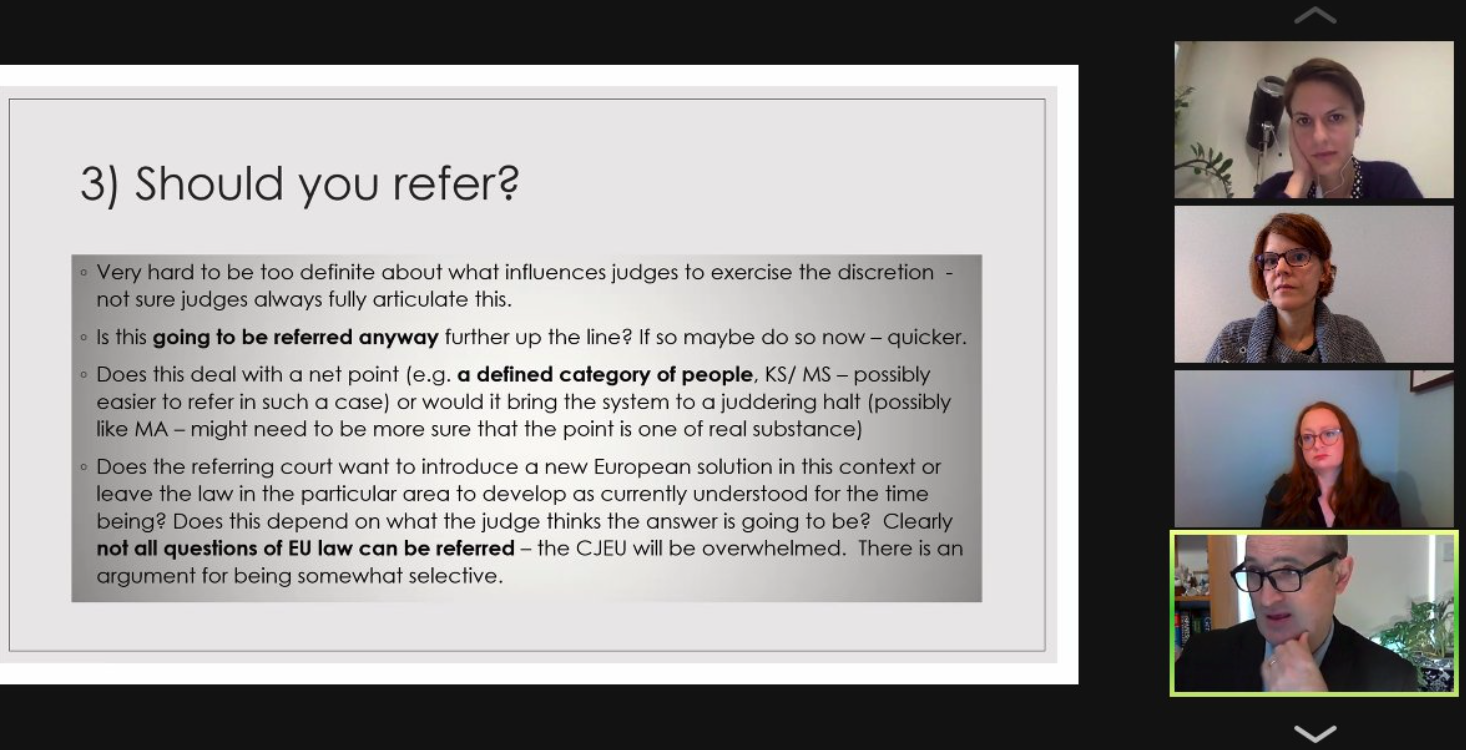Judges must view safe country of origin designations with caution and need to make sure individual cases are properly assessed in asylum procedures, judges and experts said during a seminar for Irish and Czech judges held by the International Commission of Jurists (ICJ), Immigrant Council of Ireland and Forum for Human Rights.
Safeguards for vulnerable applicants are especially important, and the burden of proof put on them to prove their own vulnerability must be considered with caution, the seminar was told.
For children in the asylum process, the seminar heard that there are difficulties challenging the age assessment decisions by applicants, in many EU countries. Only a few of these countries actually provide for an effective remedy in the case of a negative age assessment decision, but even in these cases it may be difficult to access the remedy.
Addressing gender-based persecution claims for asylum, speakers highlighted that the Istanbul Convention on Violence against Women can provide useful guidance in decision making on such claims.
During the seminar, judges and judicial assistants from the Czech Republic and Ireland discussed issues including the safe country of origin concept, vulnerability in the context of migration, gender-based violence persecution claims, preliminary questions to the Court of Justice of the EU and the impact of Covid-19 on human rights of migrants and refugees in both countries.
A summary of the discussions
On the first day, judges exchanged information on the national systems relating to asylum in Ireland and the Czech Republic. Professor Cathryn Costello presented an analysis of the safe country of origin concept and its implications, including in light of national case-law on designated safe countries, from Canada, France,Germany and other countries. Issues such as the safe country lists and the controversial possibility to exempt a part of a country from the list were discussed.
Stanislava Sládeková from the Brno Regional Court gave an overview of the impact of Covid-19 on migrants and refugees during the last eighteen months in the Czech Republic. Doireann Ansbro from the Irish Council for Civil Liberties provided an overview of the impact of Covid-19 restrictions in Ireland. It was noted that migrants and asylum seekers suffered from further delays in decision making on their applications for international protection, accommodation in overcrowded centres, detention and forced quarantine and a lack of access to legal assistance, legal aid and information.
On the second day, experts from EASO presented the new EASO vulnerability guide and discussed vulnerability assessment in the asylum process. This was followed by a presentation by Louise Hooper on gender-based persecution claims, including a detailed analysis of European Court of Human Rights case-law and the Istanbul Convention.
Finally judges exchanged their experiences with preliminary questions to the CJEU. Judge Richard Humphreys from High Court of Ireland and Judge Jakub Camrda from the Supreme Administrative Court of the Czech Republic shared their experiences with referring questions to the CJEU, while Magdalena Ličková, a referendaire at the CJEU provided the participants with an overview of the procedures related to the preliminary questions to the Court. Judges exchanged good practices on the role of last instance courts or tribunals in relation to such references.
The seminar formed part of the FAIR plus project, a judicial training and cooperation project supported by the European Union’s Justice programme, focusing on four countries: Ireland, Greece, Italy and the Czech Republic. The aim of the project is to contribute to better judicial protection of the fundamental rights of migrants across the EU. Within the project the ICJ and partners have published training materials (to be downloaded here).
The project is implemented in collaboration with national partners: Immigrant Council of Ireland (ICI), Scuola Superiore Sant’Anna (SSSA, Italy), Greek Council for Refugees (GCR) and Forum for Human Rights (Czech Republic).
You can view or download the agenda for the two days here.




